Our letter:
We, members of Sanhati, an organisation of Indian students, researchers, and professionals living in North America and Europe, would deeply appreciate any attempts on your part to register protest against the massacre of peasants by the police in Nandigram, West Bengal, India on 14th March 2007.
While official sources are claiming that around 20 have been killed, un-official investigations by journalists and activists are revealing that the number of victims far exceeds the official statistics. The dead includes a large number of women and children, with accounts of gang-rape, mutilation, and mass disposal of bodies starting to emerge. Besides, many are “missing” from the villages, thus giving rise to comparisons with the incidences of “disappearnces” within many Latin American dictatorial regimes.
An all-India fact-finding team consisting of, among others, Medha Patkar, has come out with the following report : http://sanhati.com/front-page/76/
This savage massacre is the culmination of the neo-liberal onslaught by the state government of West Bengal against the lives and livelihoods of the poor peasants of the state. The government, which is surprisingly led by the largest left party in India, the Communist Party of India (Marxist) (CPI-M), has attempted to acquire land forcibly from the farmers of Nandigram for the setting up of a chemicals factory by the Salim group of Indonesia, which is otherwise known as a front of the Suharto family. This had been met by all round popular resentment and resistance. The attack by thousands of armed police was intended to break this resistance. In the name of industrialisation and “development, ” the CPI-M-led government has embarked upon a policy of forcible acquisition of agricultural land, depriving thousands of farmers and landless labourers of their only means of livelihood. In such a context, the incident at Nandigram is not an isolated incident of bureacratic mis-management, but is part of a process of terrorization of the peasantry by a government working on behalf of corporations.
The Nandigram incident also points out to the fact that in spite of their “leftist” rhetoric, the CPI(M) party and government in West Bengal is a willing partner in the process of impostion of neo-liberal policies that is taking place in India.
Thanking you,
Sanhati (Solidarity)
www.sanhati.com
Selected Responses :
Noam Chomsky
I’ve heard about it, but from this distance cannot presume to make any judgments with any confidence, though I would certainly support a call for a serious independent investigation.
Piya Chatterjee, Department of Women’s Studies, University of California at Riverside.
Ofcourse, please use my affiliation for any letters of protest that you send. The more the better. The MOST important thing is to ALLY directly with
community-based organizations in the area especially those working directly on questions of state violence.
Dipjyoti Majumdar, Department of Economics, Concordia University
As a fellow human being, I fully support your cause and strongly protest against the torture and killings that took place in Nandigram. The way government handled the situation on March 14th, 2007 at Nandigram is absolutely unacceptable in any civilized society. In my own meagre way, I am with Sanhati in this protest.
Suman Majumdar, Statistics, University of Connecticut
I am aware of what is going on Nandigram and deplore it no uncertain terms. May I suggest that along with approaching the Indian Press we should file a writ petition in the Supreme Court seeking justice by writing to the Chief Justice of India. Given the political equations in the country, I don’t think anything else will have any measurable impact.
Maitreesh Ghatak, London School of Economics
I appreciate the efforts you and your colleagues. I plan to write on this in greater detail later, but right now just a few words that convey my immediate response to this.
Development - whatever is the model and the modalities - should not be at the expense of the weakest sections of society and certainly not at the expense of human lives. The kind of coercive and violent measures unleashed by the state that was witnessed in Nandigram should be condemned unconditionally and universally - no apologies, no excuses are enough. Development has to be decentralized and participatory.It should be responsive to local needs and demands. While debates and discussion about the nature of the development strategy are welcome. there should be not disagreement regarding these basic principles.
I for example believe that one has to be realistic about the need for industrialization - given the man-land ratio and limited opportunities for agricultural productivity improvements,industry and services are the logical sectors to which resources should flow to generate new employment opportunities and income growth. I also believe that the state cannot and should not micro-manage the economy. However, I also strongly believe, that a top priority should be to provide a social safety net to deal with whatever dislocation that it might involve. The cost of development should not be disproportionaly borne by those who are least equipped to do so. The only ray of light I see in all this is the role of the civil society and the media - one shudders to think what would have happened without their vigilance.
Swati Chattopdhyay, Art History, UC Santa Barbara
By early next week I plan to post an article on this on “Citations” — a link within the website www.ihc.ucsb.edu/subaltern.
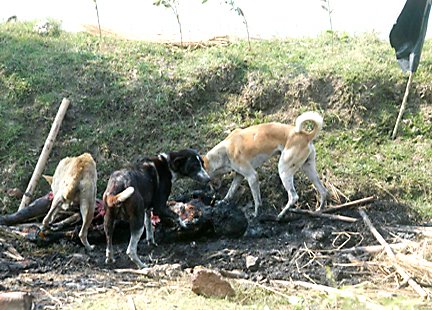

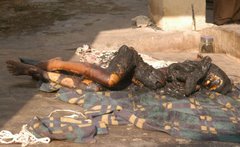
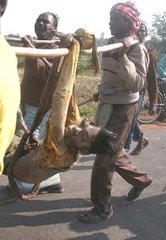
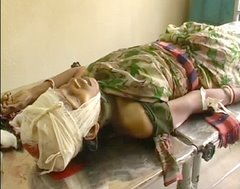

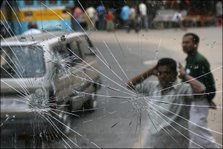
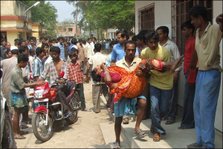

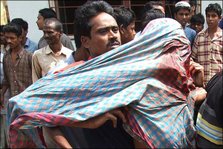


No comments:
Post a Comment